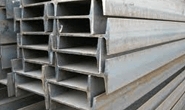Government/Policy

March 21, 2019
AD/CVD Investigation on Fabricated Structural Steel Moves Forward
Written by Sandy Williams
An antidumping/countervailing duty investigation will continue on imports of fabricated structural steel from Canada, China and Mexico following a decision by the U.S. International Trade Commission.
The USITC has determined that there is reasonable indication the U.S. industry is being materially injured by imports of fabricated structural steel from Canada, China, and Mexico that are allegedly subsidized and sold in the United States at less than fair value.
The investigation initiated by Commerce in February alleges there are 44 subsidy programs for Canadian fabricated structural steel, including tax programs, grant programs, loan programs, export insurance programs and equity programs. There are also 26 subsidy programs for China and 19 subsidy programs for Mexico, Commerce contends.
Commerce will make its preliminary countervailing duty determinations on or about May 1 and preliminary antidumping determinations by July 15.







